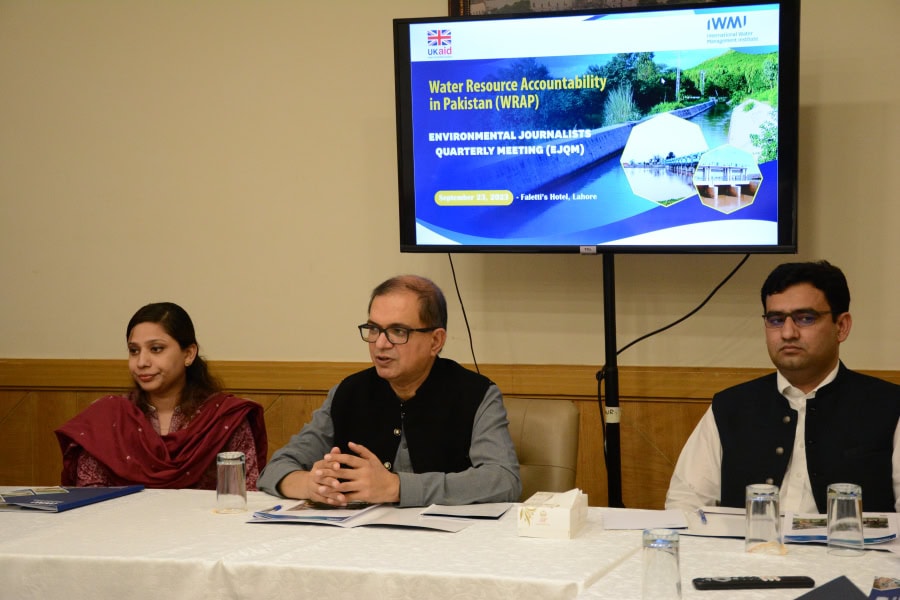LAHORE – The International Water Management Institute (IWMI) Pakistan, as part of its “Water Resource Accountability in Pakistan (WRAP)” programme funded by UKaid, briefed reporters the progress under the first component of the project titled “Climate Resilient Solutions for Improving Water Governance (CRS-IWaG).”
Dr Mohsin Hafeez, director of water, food & ecosystems at IWMI Pakistan, said the initiative is being implemented in Okara district and represents the broader Water Resource Accountability in Pakistan programme, slated to continue until 2026. The project addresses Pakistan’s pressing water governance and management challenges, with a particular focus on the impact of climate change, he said.
Dr Hafeez said the program will modernise water infrastructure across various regions in Pakistan. Through strategic investments, outdated infrastructure has undergone substantial upgrades, resulting in more efficient water storage, distribution, and management systems. These improvements will increase water availability for communities, even during periods of scarcity.

Dr Hafeez said the collaborative efforts with both provincial and federal governments would strengthen governance structures, making decision-making processes related to water resources transparent, inclusive, and accountable. This initiative will establish robust institutional frameworks and capacity-building initiatives for government agencies and local communities.
He said the IWMI deployed advanced scientific instruments known as “soil moisture sensors” to farmer communities in Okara to yield significant water savings over time, potentially enhancing crop productivity and alleviating pressure on the region’s already limited water resources. The project places a strong emphasis on capacity-building for various line departments, particularly at the district and sub-district levels. Officials from departments such as Irrigation, Agriculture, Environment, and Municipalities have undergone specialized training in Integrated Water Resources Management (IWRM) principles, a critical aspect given the Punjab Water Resources Commission’s mandate under the Punjab Water Act 2019 for data-driven water allocation and reallocation decisions.
Furthermore, the program supports climate-smart interventions that empower female farmers to address the unique challenges and opportunities faced by women in agriculture, particularly in the context of climate change and sustainable farming practices. Community engagement and empowerment have played a pivotal role, facilitating grassroots initiatives for sustainable water management and instilling a sense of ownership among local populations.
Dr Abdul Rehman Cheema, regional researcher and water Governance and institutional Specialist at IWMI, highlighted the program’s efforts to enhance data collection, analysis, and sharing mechanisms related to water resources. Access to accurate and up-to-date information has empowered stakeholders to make informed decisions, resulting in more efficient water allocation and utilization. Moreover, the project’s collaborative approach has fostered cross-sectoral cooperation among government agencies, civil society organizations, and private sector entities, leading to holistic and comprehensive solutions to Pakistan’s water governance challenges.










